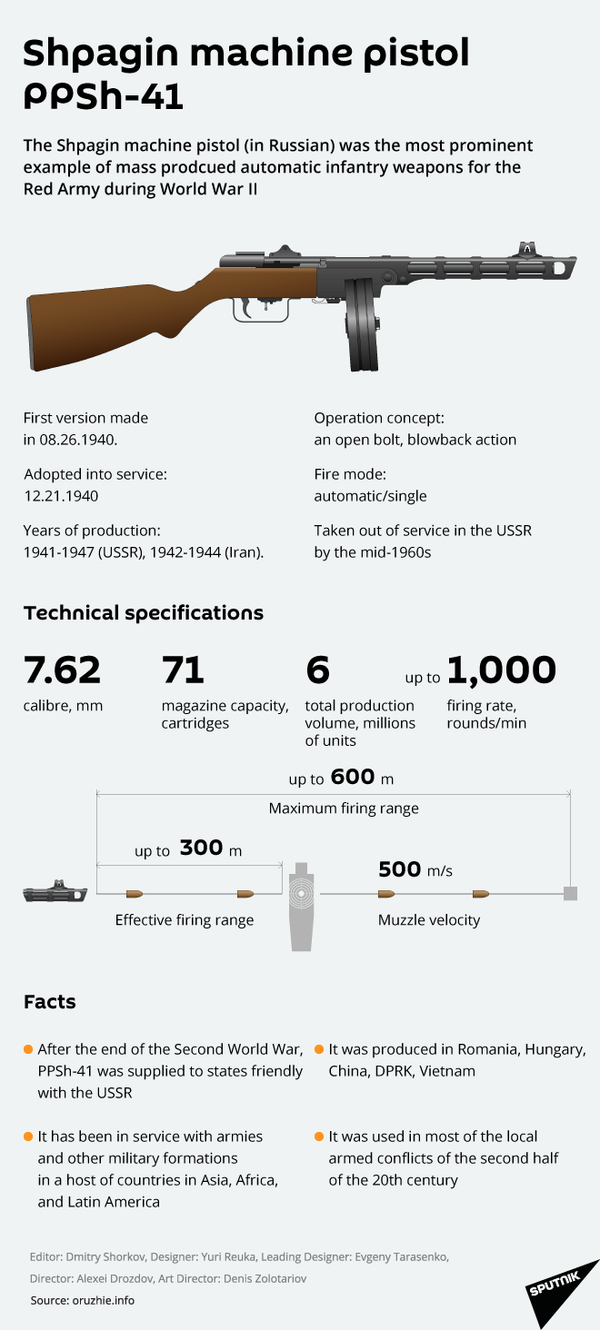
A Soviet submachine gun designed by Georgy Shpagin, the PPSh-41, became one of the main infantry weapons of the Soviet Armed Forces during World War II.
The PPSh-41 was often called "Papasha" ("Daddy") by Russian soldiers as its three-letter acronym sounds similar.
The gun fires the standard Soviet pistol and submachine gun cartridge, the 7.62×25mm (Tokarev). While weighing approximately 12 pounds (5.45 kg) with a loaded 71-round drum and 9.5 pounds (4.32 kg) with a loaded 35-round box magazine, the PPSh-41 can shoot about 1,000 rounds per minute, a very high rate of fire compared to most other military submachine guns during World War II. It is a durable, low-maintenance weapon made from low-cost, easily obtained components, primarily stamped sheet metal and wood.
With this gun, Soviet soldiers defended Moscow and Odessa as well as fought in the Battles of Kursk and Stalingrad. With the PPSh-41, Soviet soldiers crossed half the world and celebrated their victory by firing up into the sky above Berlin in May 1945.
